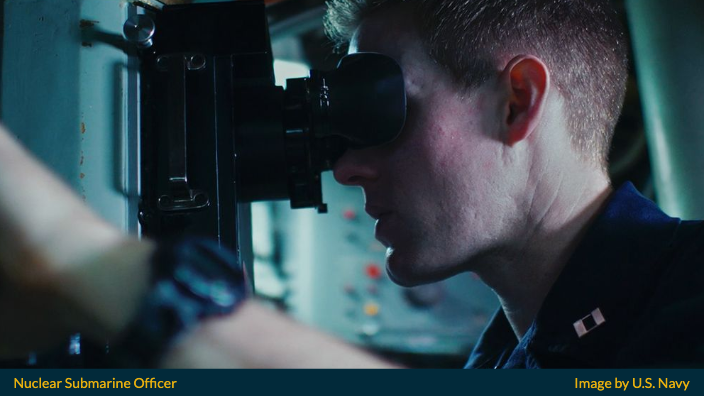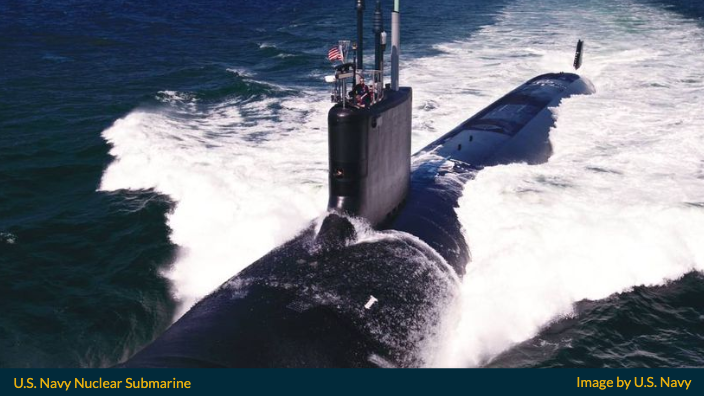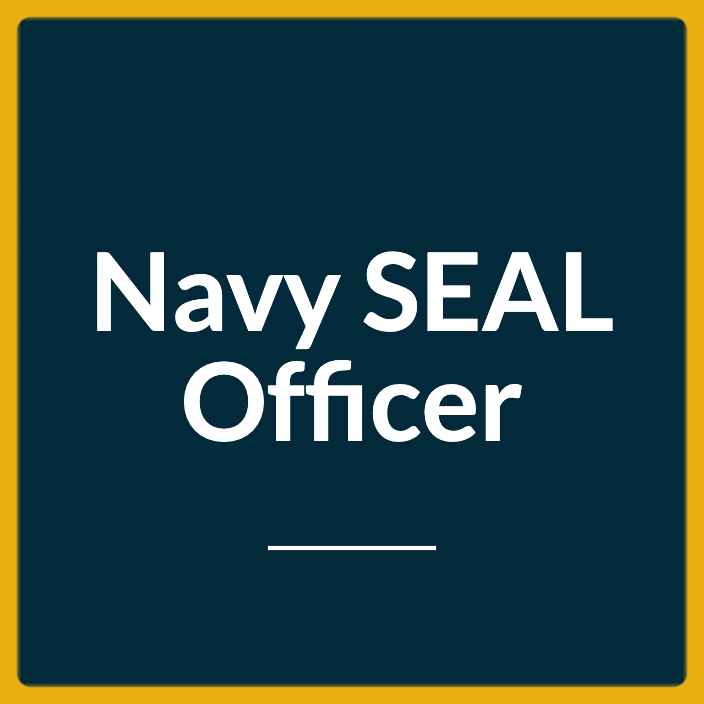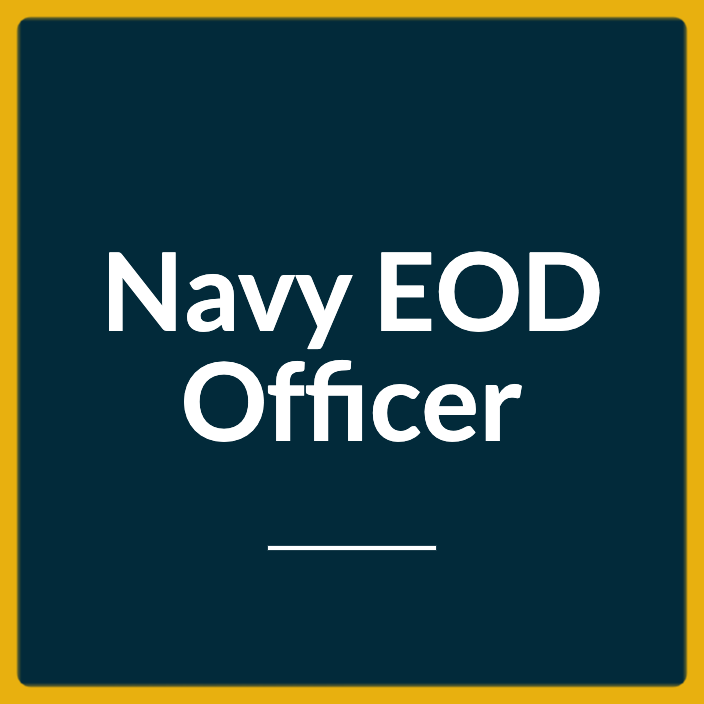Last Updated on March 4, 2024
This guide provides information that will help you with your decision to become a Navy Submarine Officer during Fiscal Year 2024.
The precise technology aboard a nuclear-powered submarine is sophisticated, but handling the complexities among the personnel requires just as much skill.
Navy Submarine Officers are Unrestricted Line Officers in the Navy who are in charge of every department on a submarine. The Navy designator code for Nuclear Submarine Officer is 1120.
Whether you are in charge of the nuclear reactor plant on board or steering the ship through the depths of the sea, you are constantly setting a good example.
Because every decision reflects your judgment, you must have the guts to trust it.
Finally, it is your responsibility to manage your crew and keep your missions on schedule.
Let us get into the particulars of this job.
What Does A Submarine Officer Do?

Navy Submarine Officers are responsible for powering, operating, driving, and arming the Navy’s fleet of attack, ballistic missile, and guided missile submarines.
The stealth technology and superior combat capabilities of these nuclear-powered vessels, along with the sheer ability of those in command, have resulted in years of effective conflict engagement and deterrence.
Submarine Officers are responsible for all elements of submarine operations, from monitoring the reactor plant to operating the ship in port and at sea. You could be in charge of one or more of the following:
- Operation of a nuclear reactor, production of power, and propulsion systems
- Upkeep of onboard weaponry systems
- Maintaining life support systems
- Navigating the ship and charting its course
- Use of sonar, radar, fire control, communications, and specific mission equipment
Conflict Deterrence
Today, the Guided Missile, Trident Ballistic Missile, and Fast Attack nuclear-powered submarines are the most critical deterrents in the Navy.
Picture this:
Serving on Trident Ballistic Missile submarines allows you to be a member of the Navy’s strategic deterrent arm, safeguarding the nation at sea.
You protect the country from the front lines on board Fast Attack and Guided Missile submarines.
Your experience as an Officer on board all submarines begins with the highly sophisticated engineering activities that power the submarine.
As you advance in your career as a Navy Nuclear Submarine Officer, you will be in charge of all areas of the ship’s capabilities.
Extraordinarily High Standards
Naturally, the officers who control these $2 billion underwater warships are held to the highest standards and have exceptional tasks and responsibilities.
Only a small number of disciplined and devoted Naval Officers are given the opportunity to command the world’s most technologically advanced naval vessels.
Submarine Officer Pipeline
Below is the Nuclear Submarine Officer Training Pipeline. As you will see, US Navy Submarine Officer training is long and arduous… but understandably so.
The Navy Officer designator code for Nuclear Submarine Officer is 1120. Officers still in the training pipeline have assigned designator codes 1170 or 117X.
Officer Candidate School
The formal training for becoming an officer in the Naval Nuclear Propulsion program begins shortly after college graduation.
Officer Candidate School (OCS) in Newport, RI is the starting point for individuals interested in becoming Navy Submarine Officers.
Over the course of 3 months, OCS gives a comprehensive and intensive introduction to the responsibilities of Navy Officers.
Also Read: Navy OCS Guide for Officer Applicants
Naval Nuclear Power School
After completing Navy OCS:
Newly commissioned Ensigns proceed to the advanced training that is at the heart of Navy Nuclear Propulsion, beginning with Naval Nuclear Power School (NNPS) in Charleston, South Carolina.
This 24-week graduate-level intensive course covers a wide range of science and technology subjects, including calculus, reactor dynamics, thermodynamics, and electrical engineering.
NNPS teaches the fundamental information required for a conceptual understanding of nuclear propulsion.
Nuclear Power Training Unit
Submarine Officers then attend Nuclear Power Training Unit (NPTU), often known as Prototype, at Charleston, SC or Ballston Spa, NY.
This 26-week program includes hands-on training with various functioning reactor prototypes.
Officers use what they learned at Nuclear Power School here, learning the systems and components of a nuclear propulsion plant and working with all of the associated systems of a full-scale operational plant.
The program culminates in certification as an Engineering Officer of the Watch.
Submarine Officer Basic Course
Next up:
Submariners attend the Submarine Officer Basic Course (SOBC), a 12-week course of study at the US Navy Submarine Officer School in Groton, CT.
Before reporting to an assigned submarine, officers master all there is to know about submarine operations, including seamanship, damage control, sonar systems, and safety, as well as the responsibilities of managing an advanced submarine crew as a division officer.
Division Officer Tour
After about 15 months of shore-based training, you will be assigned as a Division Officer on a submarine, where you will be in charge of a crew of highly trained Enlisted Submariners.
Nuclear Submarine Officers complete a rigorous submarine qualifying program that ends in being certified as “Qualified in Submarines,” gaining the opportunity to wear the coveted Gold Dolphins insignia and assume all of the duties that come with it.
This is typically a 32-month tour that alternates between patrols, deployments, and numerous ports of call throughout the world, as well as periods of time at homeport performing local operations, training, maintenance, or on personal leave.
The duty station options for Submarine Officers are:
- Groton, CT
- Norfolk, VA
- Kings Bay, GA
- Bangor, WA
- San Diego, CA
- Pearl Harbor, HI
- Guam
Shore Rotation
Following the sea tour as a Division Officer, a 2-year shore duty follows.
Submarine Officers fill roles ranging from Nuclear Power School through Prototype to Submarine School during this time.
They may be chosen to serve on high-level staff or strategic initiatives, or they may choose to pursue their education by taking advantage of the Navy’s various graduate school possibilities.
Navy Submarine Bonuses
In addition to regular Naval Officer basic pay, allowances, and benefits, Submarine Officers may earn Submarine Duty pay and Submarine Department Head retention bonus.
These special pay and bonuses are not always available to all other Naval Officer specialties.

Post-Service Career Opportunities
A career as a Nuclear Submarine Officer will provide you with excellent post-service opportunities.
Because of the program’s extremely selective structure, paired with world-class advanced training and credentials, your skills and expertise are in great demand.
Adding “Navy Nuke” to your resume will position you as a top contender for a range of potential jobs, including civilian engineering and management positions after you conclude your commitment
For instance:
As a Submarine Officer, you will eventually qualify as a Prospective Nuclear Engineering Officer (PNEO), a Department of Energy designation recognized by the civilian nuclear power sector and a valuable addition to your resume after your service in the Navy.
Educational Opportunities
In addition to best-in-class training and cutting-edge facilities, current undergrad students who match the required background will have the opportunity to earn money while finishing school through the Nuclear Propulsion Officer Candidate (NUPOC) program.
Students majoring in mathematics, engineering, physics, and chemistry may be given priority admission to the program.
If you are accepted into the NUPOC program as an aspiring Nuclear Submarine Officer, you will get the following:
- Earn more than $4,000 per month for up to 30 months even before graduating college.
- Receive a one-time $15,000 sign-on bonus. Plus, you will receive an additional $2,000 incentive when you finish nuclear propulsion training.
- Enjoy military health-care benefits while enrolled in the program.
- Use your college years while enrolled in the program to count toward your retirement.
- While in college, you will be considered to be a full-time student with no military commitments or duties.
Interested applicants may contact a Navy Recruiter and inquire about participating in a relevant question and answer information seminar. This will allow you to learn more about the position and get answers to any questions you may have.
Applicants are not required to join the program when they attend these weekly seminars.
Postgraduate Educational Opportunities
When you finish school, you will be able to apply for a career as a respected professional and officer in the world’s most accomplished nuclear program.
In addition to your undergraduate and official Navy training and education, you can further your education by:
- Completing the Joint Professional Military Education (JPME) at one of the various service colleges
- Using Tuition Assistance benefit to attend online or in-person graduate programs during shore assignments
- Navy College Program
- VOLED Assistance Center
- VOLED Region Advisors
- The Naval Postgraduate School (NPS)
- Navy War College (NWC)
- US Air Force Air University Air Command and Staff College
Life As A Submarine Officer
Watch this video to see how it is really like to be a Nuclear Submarine Officer – living and working in a multi-billion dollar moving underwater missile silo.
When you live like this, everything is intensified ten times.
How To Become A Nuclear Submarine Officer
Because of the difficult nature of the Naval Nuclear Propulsion Program and the enormity of the tasks members will take on from a young age, the qualifications to become a candidate and join NUPOC are strict.
Basic Eligibility
1. Gender
The NUPOC program is available to both men and women.
2. Citizenship
Applicants must be a U.S. citizen (dual citizen applicants must renounce other citizenship).
3. Education
Candidates must be current students or graduates of a U.S. accredited college or university pursuing a BS, BA, or MS (preferably major in engineering, mathematics, chemistry, physics, or other technical fields – but not required).
Academic Requirements
- One academic year of calculus – Finish satisfactorily
- One academic year of calculus-based physics – Finish satisfactorily
- Competitive Cumulative Grade Point Average and a minimum grade of “C” in all technical classes
Graduates
Applicants must have completed a bachelor’s degree from an accredited college or university in the United States, while satisfying the academic requirements.
College Students
Those still in college may apply as early as 30 months from completion of an undergraduate degree for a Nuclear Submarine Officer position.
Postgraduate
Applicants currently enrolled in postgraduate studies may also apply for the NUPOC program as early as 12 months before graduating with a master’s degree.
4. Age
Applicants must be at least 19 years old and less than 29 years old upon commissioning. Age waivers up to 31 years old may be considered on an individual basis.
5. Physical
Applicants must pass a physical and medical screening, typically conducted during the application process.
Upon Selection For Commission
If selected by the Director, Naval Reactors, applicants will attend a 1-day orientation in the Washington, DC area.
Upon completion of orientation, applicants have the following options:
- Enlist and be placed in active duty status as an officer candidate (E-6) in the Navy Reserve; or
- Enlist and be placed in an Inactive Navy Reserve status as an officer candidate (E-6) if designated as inactive prior to selection; or
- College graduates are expected to enlist and be placed in an active duty status as an officer candidate (E-6) in the Navy Reserve until completion of OCS when they will be commissioned into the Regular Navy.
Active duty and reserve members of any service selected for the NUPOC program will retain their current rank. If their current rank is below E-6, they will automatically be promoted to E-6.
All selectees placed in active duty status are entitled to full pay, benefits, and allowances – except for clothing allowance.
Service Commitment For Submarine Officer
Selected applicants for the Navy Submarine Officer program will incur a 5-year active service obligation.
The total service obligation is 8 years, 3 years of which may be served under Inactive Ready Reserve status.
More Information
If you want more information about becoming a Nuclear Submarine Officer, the next logical step is to contact a Naval Officer Recruiter.
Let us start figuring out how you can benefit from becoming a Nuclear Submarine Officer – or if it is even the right career move for you.
You may also find more information about other closely related Navy Officer jobs – such as the Nuclear Surface Warfare Officer program – in our Quick Guide for Unrestricted Line Officer programs.


